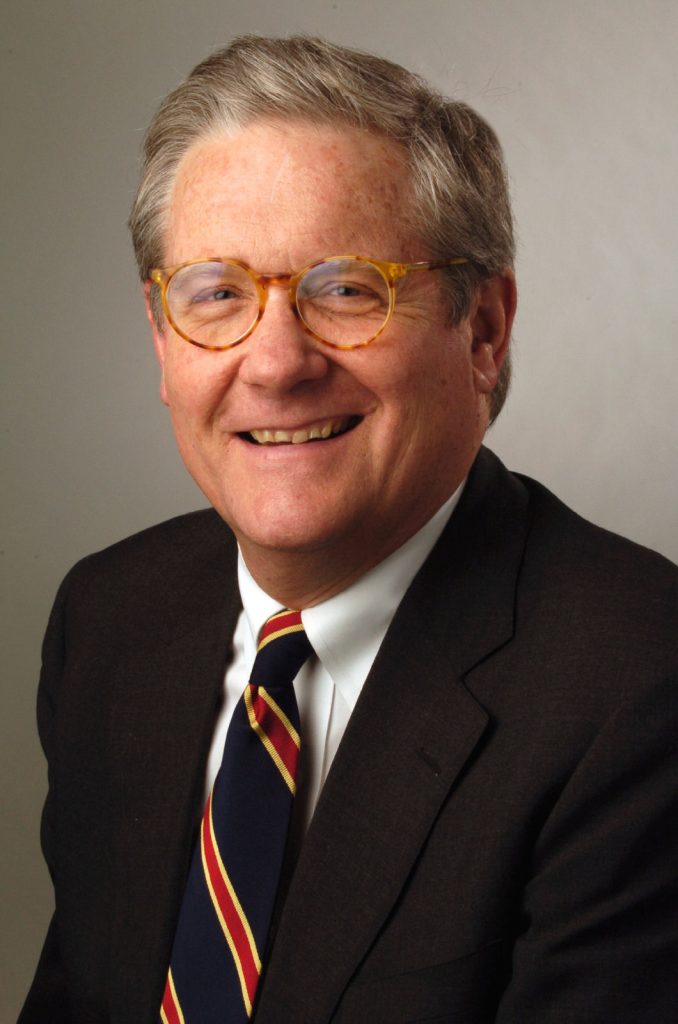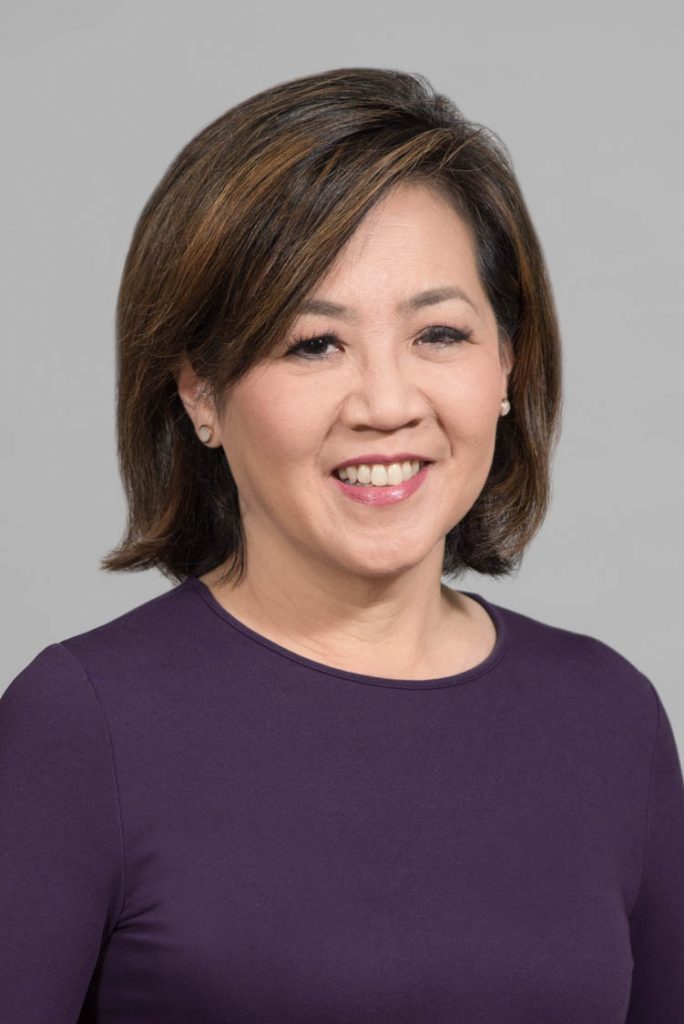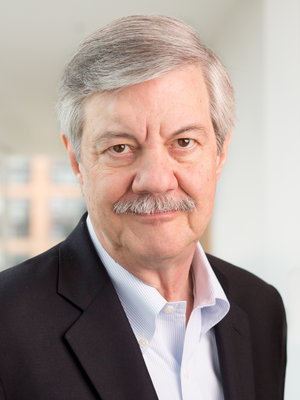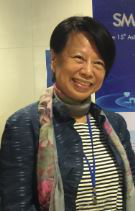Media Impact on the 2020 US Elections: Professionalism, Partisanship and Pandemic
Monday, August 31st, 2020
James McGregor, Chairman of Greater China for APCO Worldwide, served as moderator for the webinar engaging prominent political journalists Fred Barnes, Joie Chen, and Ron Elving in a thought-provoking discussion about the pivotal 2020 US elections. Hosted in partnership with AmCham China and the Fortunius Society in Macau, 75 attendees with backgrounds in academia, government, journalism, C-level roles and business management tuned in from seven different countries and territories including China, Hong Kong SAR, Japan, Macau SAR, the Philippines, Singapore, and the United States.
Joie Chen, Washington Programs Director for Northwestern University’s Medill School of Journalism and former Al Jazeera America news anchor, began the webinar explaining the linkage between US news coverage and the political environment. She expounded that, “never before has China been so much a part of the political conversation,” and further discussed the recent Republican National Convention where China was a repeated focus of almost every speech. Ms. Chen spoke on the impact of all the political coverage about China this year, expressing her concern for the increasing racism towards Asians in the US and new Pew Research polling data showing Americans’ record high negative views of China. Ms. Chen characterized this year’s election as “one of the most consequential in US history.”
Ron Elving, Senior Editor and Correspondent for NPR News, provided a historical context on US journalism and objectivity to delve into the question of whether US media today is more polarized than ever before. He explained that the media landscape appears increasingly polarized because the media today is very different than what people grew up with in the mid-to-late 1900s. In that era there was not a vast variety of news sources. The economics of the few news outlets was to reach a vast and sustainable audience, accomplished by being as little divisive as possible. Today, with the rise of social media and the internet, this is no longer the case. Mr. Elving characterized 21st century news as having a vast panoply of viewpoints and sources that tend to be provocative, far-left or far-right to attract an audience and this has contributed to polarization.
Fred Barnes, Columnist for the Washington Examiner, further engaged the audience by extending the conversation on the evolution of US media, focusing on the 2020 presidential campaigns and November elections. Mr. Barnes discussed the negative implications of President Trump’s need to constantly appear on TV and voice his opinion on social media platforms, stating that this hurts his re-election campaign. He also stressed how the media has become more opinionated in the last 20 years and that most of today’s media is more liberal than conservative which has really been shown in the way media outlets cover President Trump.
Mr. McGregor skillfully moderated a Q&A session where the participants were able to engage with the speakers. One particular question was answered by Mr. Barnes, “what will Biden’s attitude towards China be if he gets elected?”. He explained Biden’s current ‘tough’ stance on China is a temporary campaign strategy to get ahead of President Trump, but stressed he does not think Biden will be so strongly critical of China if elected president as that was not his stance in previous years. Mr. Elving spoke on the question of “can media play a role in building a consensus in the US instead of leading to polarization?”. He affirmed the possibility exists but that issues ensue, highlighting that one of the biggest issues in the polarization of media this year is that some conservative journalists have a problem with Trump which would make it difficult for even conservative media to reach a consensus among themselves. The speakers also discussed the trustworthiness of the polls with Mr. Barnes emphasizing that its important to be dubious about them. Other important questions such as the division among conservatives about Trump, the view of America in China, and the president’s executive order on Tiktok were also covered.
The speakers explored how domestic politics and US news coverage are intertwined, and they also helped comprehend China’s unusually large role in this year’s political dialogue and presidential campaigns. All of the speakers highlighted that the 2020 presidential election is poised to be one of the most important elections in US history, with China remaining an important issue for Americans in the years to come.
If you would like to view a recording of this event, please send an email to info@uscet.org with your name, affiliation, and title.
Speakers

Fred Barnes
Senior Columnist, The Washington Examiner
Fred Barnes is a Senior Columnist at the Washington Examiner and appears regularly on the Fox News Channel. Barnes was executive editor of The Weekly Standard, which he co-founded in 1995 and was published until 2018. From 1985 to 1995, he was senior editor and White House correspondent for the New Republic. He covered the Supreme Court and the White House for the Washington Star before moving to the Baltimore Sun in 1979. He served as the national political correspondent for the Sun and wrote the “Presswatch” media column for the American Spectator. From 1988 to 1998 he was a regular panelist on the McLaughlin Group. He has also appeared on Nightline, Meet the Press, Face the Nation, and the NewsHour with Jim Lehrer. Barnes graduated from the University of Virginia and was a Neiman Fellow at Harvard University.

Joie Chen
Director, Northwestern University Medill School of Journalism – Washington, DC
Joie Chen serves as Director of Washington, DC Programs for Northwestern University’s Medill School of Journalism, one of the world’s premier journalism schools. She returned to serve her alma mater after a long career as an award-winning, broadcast journalist recognized for her reporting across the US and internationally. Prior to joining Medill’s administration, she was Anchor and Correspondent for “America Tonight”, Al Jazeera America’s signature prime-time current affairs program, for which she reported from more than 30 states, Japan and the Philippines. The program focused on social issues and political developments, with a focus on underreported communities in the US. Earlier in her career, Chen was a CBS News Washington correspondent, reporting from the White House, Capitol Hill and other major beats in the nation’s capital. She came to CBS after a decade as an anchor and correspondent for CNN and CNN International.

Ronald Elving
Senior Editor and Correspondent, NPR News
Ron Elving is Senior Editor and Correspondent on the Washington Desk for NPR News, where he is frequently heard as a news analyst and writes regularly for NPR.org. He is also a professorial lecturer and Executive in Residence in the School of Public Affairs at American University, where he has also taught in the School of Communication. In 2016, he was honored with the University Faculty Award for Outstanding Teaching in an Adjunct Appointment. He has also taught at George Mason and Georgetown. He was previously the political editor for USA Today and for Congressional Quarterly. He has been published by the Brookings Institution and the American Political Science Association.
Moderators

Jim McGregor
Chairman of Greater China, APCO Worldwide
James McGregor is chairman of APCO Worldwide’s greater China region and author of two highly regarded books: No Ancient Wisdom, No Followers: The Challenges of Chinese Authoritarian Capitalism, and One Billion Customers: Lessons from the Front Lines of Doing Business in China. Prior to joining APCO, Mr. McGregor was the founder and CEO of a China-focused consulting and research firm for hedge funds, a reporter for The Wall Street Journal and a chief executive of Dow Jones & Company in China. Mr. McGregor is also a former chairman of the American Chamber of Commerce in China, and has long served as a leader of AmCham’s U.S., government relations.

Mei WU
Adjunct Professor, Centre of Macau Studies, University of Macau
Mei Wu worked as Associate Professor of Communication at the University of Macau (UM) for 20 years and formerly the Director of Social Science Research Centre on Contemporary China, University of Macau. She also serves as the President of Asia-Pacific Communication Exchange Association and one of the founding members of the Fortunius Society (Macau), committed to multiculturalism and international political, economic and communication research towards globalization.

